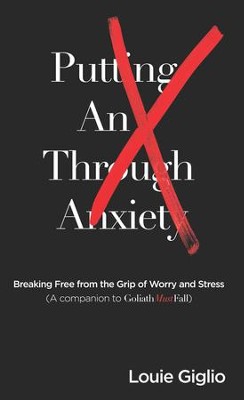Nihilism with a Smile
Description
In our work with students, I am experiencing more teens and twenty-somethings who, by default or design, are leaning toward nihilism as a worldview. I thought it would be wise to offer a “heads up” in case you begin to spot this sour perspective among the students on your campus…or in your home.
When I ponder why, the answers come quickly. As I have blogged before, kids today are growing up in a culture that actually fosters nihilism. Unless they’re growing up in a marvelously positive, two-parent home with lots of love and support (and they don’t keep tabs on what’s happening over the last ten years in the economy, among terrorist’s groups, on Wall Street or within hate groups against others in the U.S.) our kids today can easily slip into a worldview that’s pessimistic. Even nihilistic.
Young adults today are reacting predictably. By and large, the numbers tell us they’ve withdrawn. They’re into themselves. Survival is the name of the game. Many are in a “wait and see” mode. School. Careers. Marriage. They are even waiting to have children. In 2014, 47.6% of American women ages 15-44 did not have any kids, the highest percentage of women without children since 1976. (This illustrates how young adults today are becoming comparable to Generation X.)
What is Nihilism?
Nihilism is “the rejection of all moral principles, often in the belief that life is meaningless.” When someone becomes a nihilist, they appear skeptical, negative and disbelieving. Any sense of order seems futile. They respond in conversations with sarcasm and cynicism. Even pessimism. “Why try?”, they ask. “It won’t make any difference.”
It’s part of the downside of post-modern thought. It maintains that nothing in the world has real meaning; in fact, nothing really exists. Why adhere to social order? Why labor to cooperate with someone else, when it may mean I don’t get what I want? When taken to an extreme, nihilism produces disillusionment. What I see most in students who struggle with nihilism, however, is a warped sense of humor. Sarcasm on steroids. Without any meaning, they tend to divert themselves with something to laugh at; to make fun of. Otherwise, life is a downer. I call it: nihilism with a smile. It’s the best alternative when you’ve lost hope.
Visible Results in Students?
Some of the signals of this unwitting perspective in students are:
Lack of ambition or drive: Why be motivated to do something if it doesn’t matter?
Lack of meaning or hope: With no hope in the future, I have no power in the present.
Lack of organization or structure: Why go through the trouble? Chaos makes more sense.
Lack of empathy and concern: Why should I care when I have to look out for myself?
Lack of joy or happiness: When I’m consumed with myself, I tend to get depressed.
So, if our kids have grown up with widespread reports of violence and corruption, how should we lead them, teach them, and parent them? What kind of conversation should we host with them, and what experiences should we offer them in order to help them avoid becoming a pessimist, a cynic or worse yet, a nihilist?
Four Possible Actions
Try inserting some simple experiences into these students’ lives:
- Go with them on a service trip, local or global, and do something meaningful. Involve them in a sacrificial project, serving people who can do nothing in return. Talk about it afterward. What problems need to be solved?
- Read prisoner Victor Frankl’s book with them, Man’s Search For Meaning.” Talk about his message. Frankl spent years during the WW2 Holocaust in a concentration camp and came out better than ever, his life full of meaning.
- Introduce them to a person who’s experienced far more trauma, hardship or even depression and emerged stronger in the end. Meet with this person and talk about how they made sense of the meaninglessness in their life.
- If their nihilism is widespread, offer to go to a counselor with them. Often, a therapist can furnish perspective on life, and healthy responses to depression or disillusionment. Help your student see they’re not strange, but need help.
There’s nothing wrong with laughing at life. It’s just not a good answer to nihilism.
 Overcome challenges with guided prayer, journal prompts, and God’s wisdom using iDisciple Growth Plans.
Overcome challenges with guided prayer, journal prompts, and God’s wisdom using iDisciple Growth Plans.

-12.png)








